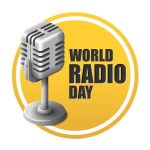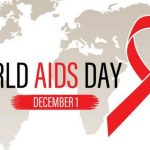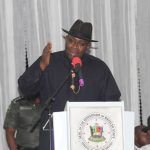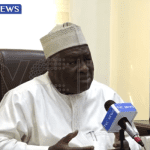Here’s all you need to know about the date, history, significance and theme of this year’s World Radio Day.
Radio, a low-cost medium that is particularly well-suited to reaching remote communities and vulnerable people, has provided a platform for people to participate in public debate for over a century, and it continues to play an important role in emergency communication and disaster relief, regardless of educational level.
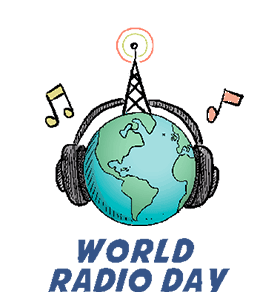
According to the United Nations Educational, Scientific, and Cultural Organisation (UNESCO), radio has reached the 100-year mark, making it an important time to remember the medium’s many virtues and ongoing power as it faces challenges to its audience and revenue numbers from digital platforms, social media, digital and generational divides, censorship, consolidations, and economic hardships.

History
Guglielmo Marconi is thought to have made the first radio transmission in 1895. Broadcasting music and talk to a larger audience began experimentally around 1905–1906.
The radio first appeared commercially in the early 1920s. Radio stations were established nearly three decades later, and the radio and broadcasting system had become a global commodity by the 1950s.
Nearly 60 years later, in 2011, UNESCO Member States declared February 13 to be World Radio Day. In 2013, the United Nations General Assembly declared it an international event.
According to the UN, radio is one of the most widely consumed mediums on a global scale, with the ability to “shape a society’s experience of diversity and stand as an arena for all voices to speak out, be represented, and be heard.”
Following a proposal from Spain, UNESCO’s Executive Board recommended to the General Conference the establishment of World Radio Day, based on a consultation process conducted by UNESCO in 2011.
Subsequently, on February 13, 1946, the then-Director-General of UNESCO proposed the establishment of United Nations Radio, and at its 36th session, UNESCO declared February 13 World Radio Day.
On January 14, 2013, the United Nations General Assembly formally approved UNESCO’s proclamation of World Radio Day. During its 67th session, the United Nations adopted a resolution designating February 13 as World Radio Day.
World Radio Day aims to increase public and media awareness of radio’s importance, as stated by the United Nations.
The day also aims to encourage radio stations to provide information through their medium while also promoting networking and international cooperation among broadcasters.
Theme
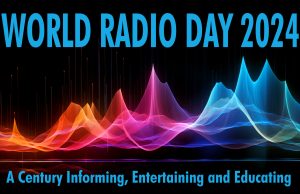 The theme for World Radio Day 2024 is “Radio: A Century informing, entertaining, and educating.”
The theme for World Radio Day 2024 is “Radio: A Century informing, entertaining, and educating.”
According to the United Nations, the 2024 observance will highlight radio’s history and powerful impact on news, drama, music, and sports. It also acknowledges its continued usefulness as a portable public safety net during emergencies and power outages caused by natural and man-made disasters such as storms, earthquakes, floods, heat, wildfires, accidents, and warfare.
Furthermore, radio’s ongoing democratic value is to serve as a grassroots catalyst for connectedness among underserved groups, such as immigrant, religious, minority, and impoverished populations.
FG pledges support for community radio stations
The federal government has stated its commitment to expanding community radio as a tool for strengthening the nation’s democracy.
This was revealed by Mohammed Idris, Minister of Information and National Orientation, in a statement issued on Tuesday in honour of the World Radio Day.
Every year, on February 13, World Radio Day is celebrated.
The theme for this year’s celebration, reflects the remarkable achievement of radio as a means of communication and information for over 100 years, despite the advent of social media,” Idris said.
The minister stated that radio plays a “vital role in shaping public opinion and promoting cultural unity in our diverse nation,” as well as providing a “platform for people of all backgrounds to speak out, be represented, and be heard, regardless of their ethnicity, religion, or political affiliation.”
Idris stated that because of the radio’s widespread information dissemination, “the government has initiated necessary reforms in the process of establishing community radio stations.”
While Nigeria has 89 licenced community radio stations, the minister stated that President Bola Tinubu’s administration is prepared to create a more conducive environment for new radio stations to emerge while also strengthening existing ones.
Here’s all you need to know about the date, history, significance and theme of this year’s World Radio Day.
Radio, a low-cost medium that is particularly well-suited to reaching remote communities and vulnerable people, has provided a platform for people to participate in public debate for over a century, and it continues to play an important role in emergency communication and disaster relief, regardless of educational level.

According to the United Nations Educational, Scientific, and Cultural Organisation (UNESCO), radio has reached the 100-year mark, making it an important time to remember the medium’s many virtues and ongoing power as it faces challenges to its audience and revenue numbers from digital platforms, social media, digital and generational divides, censorship, consolidations, and economic hardships.

History
Guglielmo Marconi is thought to have made the first radio transmission in 1895. Broadcasting music and talk to a larger audience began experimentally around 1905–1906.
The radio first appeared commercially in the early 1920s. Radio stations were established nearly three decades later, and the radio and broadcasting system had become a global commodity by the 1950s.
Nearly 60 years later, in 2011, UNESCO Member States declared February 13 to be World Radio Day. In 2013, the United Nations General Assembly declared it an international event.
According to the UN, radio is one of the most widely consumed mediums on a global scale, with the ability to “shape a society’s experience of diversity and stand as an arena for all voices to speak out, be represented, and be heard.”
Following a proposal from Spain, UNESCO’s Executive Board recommended to the General Conference the establishment of World Radio Day, based on a consultation process conducted by UNESCO in 2011.
Subsequently, on February 13, 1946, the then-Director-General of UNESCO proposed the establishment of United Nations Radio, and at its 36th session, UNESCO declared February 13 World Radio Day.
On January 14, 2013, the United Nations General Assembly formally approved UNESCO’s proclamation of World Radio Day. During its 67th session, the United Nations adopted a resolution designating February 13 as World Radio Day.
World Radio Day aims to increase public and media awareness of radio’s importance, as stated by the United Nations.
The day also aims to encourage radio stations to provide information through their medium while also promoting networking and international cooperation among broadcasters.
Theme
 The theme for World Radio Day 2024 is “Radio: A Century informing, entertaining, and educating.”
The theme for World Radio Day 2024 is “Radio: A Century informing, entertaining, and educating.”
According to the United Nations, the 2024 observance will highlight radio’s history and powerful impact on news, drama, music, and sports. It also acknowledges its continued usefulness as a portable public safety net during emergencies and power outages caused by natural and man-made disasters such as storms, earthquakes, floods, heat, wildfires, accidents, and warfare.
Furthermore, radio’s ongoing democratic value is to serve as a grassroots catalyst for connectedness among underserved groups, such as immigrant, religious, minority, and impoverished populations.
FG pledges support for community radio stations
The federal government has stated its commitment to expanding community radio as a tool for strengthening the nation’s democracy.
This was revealed by Mohammed Idris, Minister of Information and National Orientation, in a statement issued on Tuesday in honour of the World Radio Day.
Every year, on February 13, World Radio Day is celebrated.
The theme for this year’s celebration, reflects the remarkable achievement of radio as a means of communication and information for over 100 years, despite the advent of social media,” Idris said.
The minister stated that radio plays a “vital role in shaping public opinion and promoting cultural unity in our diverse nation,” as well as providing a “platform for people of all backgrounds to speak out, be represented, and be heard, regardless of their ethnicity, religion, or political affiliation.”
Idris stated that because of the radio’s widespread information dissemination, “the government has initiated necessary reforms in the process of establishing community radio stations.”
While Nigeria has 89 licenced community radio stations, the minister stated that President Bola Tinubu’s administration is prepared to create a more conducive environment for new radio stations to emerge while also strengthening existing ones.
Here’s all you need to know about the date, history, significance and theme of this year’s World Radio Day.
Radio, a low-cost medium that is particularly well-suited to reaching remote communities and vulnerable people, has provided a platform for people to participate in public debate for over a century, and it continues to play an important role in emergency communication and disaster relief, regardless of educational level.

According to the United Nations Educational, Scientific, and Cultural Organisation (UNESCO), radio has reached the 100-year mark, making it an important time to remember the medium’s many virtues and ongoing power as it faces challenges to its audience and revenue numbers from digital platforms, social media, digital and generational divides, censorship, consolidations, and economic hardships.

History
Guglielmo Marconi is thought to have made the first radio transmission in 1895. Broadcasting music and talk to a larger audience began experimentally around 1905–1906.
The radio first appeared commercially in the early 1920s. Radio stations were established nearly three decades later, and the radio and broadcasting system had become a global commodity by the 1950s.
Nearly 60 years later, in 2011, UNESCO Member States declared February 13 to be World Radio Day. In 2013, the United Nations General Assembly declared it an international event.
According to the UN, radio is one of the most widely consumed mediums on a global scale, with the ability to “shape a society’s experience of diversity and stand as an arena for all voices to speak out, be represented, and be heard.”
Following a proposal from Spain, UNESCO’s Executive Board recommended to the General Conference the establishment of World Radio Day, based on a consultation process conducted by UNESCO in 2011.
Subsequently, on February 13, 1946, the then-Director-General of UNESCO proposed the establishment of United Nations Radio, and at its 36th session, UNESCO declared February 13 World Radio Day.
On January 14, 2013, the United Nations General Assembly formally approved UNESCO’s proclamation of World Radio Day. During its 67th session, the United Nations adopted a resolution designating February 13 as World Radio Day.
World Radio Day aims to increase public and media awareness of radio’s importance, as stated by the United Nations.
The day also aims to encourage radio stations to provide information through their medium while also promoting networking and international cooperation among broadcasters.
Theme
 The theme for World Radio Day 2024 is “Radio: A Century informing, entertaining, and educating.”
The theme for World Radio Day 2024 is “Radio: A Century informing, entertaining, and educating.”
According to the United Nations, the 2024 observance will highlight radio’s history and powerful impact on news, drama, music, and sports. It also acknowledges its continued usefulness as a portable public safety net during emergencies and power outages caused by natural and man-made disasters such as storms, earthquakes, floods, heat, wildfires, accidents, and warfare.
Furthermore, radio’s ongoing democratic value is to serve as a grassroots catalyst for connectedness among underserved groups, such as immigrant, religious, minority, and impoverished populations.
FG pledges support for community radio stations
The federal government has stated its commitment to expanding community radio as a tool for strengthening the nation’s democracy.
This was revealed by Mohammed Idris, Minister of Information and National Orientation, in a statement issued on Tuesday in honour of the World Radio Day.
Every year, on February 13, World Radio Day is celebrated.
The theme for this year’s celebration, reflects the remarkable achievement of radio as a means of communication and information for over 100 years, despite the advent of social media,” Idris said.
The minister stated that radio plays a “vital role in shaping public opinion and promoting cultural unity in our diverse nation,” as well as providing a “platform for people of all backgrounds to speak out, be represented, and be heard, regardless of their ethnicity, religion, or political affiliation.”
Idris stated that because of the radio’s widespread information dissemination, “the government has initiated necessary reforms in the process of establishing community radio stations.”
While Nigeria has 89 licenced community radio stations, the minister stated that President Bola Tinubu’s administration is prepared to create a more conducive environment for new radio stations to emerge while also strengthening existing ones.
Here’s all you need to know about the date, history, significance and theme of this year’s World Radio Day.
Radio, a low-cost medium that is particularly well-suited to reaching remote communities and vulnerable people, has provided a platform for people to participate in public debate for over a century, and it continues to play an important role in emergency communication and disaster relief, regardless of educational level.

According to the United Nations Educational, Scientific, and Cultural Organisation (UNESCO), radio has reached the 100-year mark, making it an important time to remember the medium’s many virtues and ongoing power as it faces challenges to its audience and revenue numbers from digital platforms, social media, digital and generational divides, censorship, consolidations, and economic hardships.

History
Guglielmo Marconi is thought to have made the first radio transmission in 1895. Broadcasting music and talk to a larger audience began experimentally around 1905–1906.
The radio first appeared commercially in the early 1920s. Radio stations were established nearly three decades later, and the radio and broadcasting system had become a global commodity by the 1950s.
Nearly 60 years later, in 2011, UNESCO Member States declared February 13 to be World Radio Day. In 2013, the United Nations General Assembly declared it an international event.
According to the UN, radio is one of the most widely consumed mediums on a global scale, with the ability to “shape a society’s experience of diversity and stand as an arena for all voices to speak out, be represented, and be heard.”
Following a proposal from Spain, UNESCO’s Executive Board recommended to the General Conference the establishment of World Radio Day, based on a consultation process conducted by UNESCO in 2011.
Subsequently, on February 13, 1946, the then-Director-General of UNESCO proposed the establishment of United Nations Radio, and at its 36th session, UNESCO declared February 13 World Radio Day.
On January 14, 2013, the United Nations General Assembly formally approved UNESCO’s proclamation of World Radio Day. During its 67th session, the United Nations adopted a resolution designating February 13 as World Radio Day.
World Radio Day aims to increase public and media awareness of radio’s importance, as stated by the United Nations.
The day also aims to encourage radio stations to provide information through their medium while also promoting networking and international cooperation among broadcasters.
Theme
 The theme for World Radio Day 2024 is “Radio: A Century informing, entertaining, and educating.”
The theme for World Radio Day 2024 is “Radio: A Century informing, entertaining, and educating.”
According to the United Nations, the 2024 observance will highlight radio’s history and powerful impact on news, drama, music, and sports. It also acknowledges its continued usefulness as a portable public safety net during emergencies and power outages caused by natural and man-made disasters such as storms, earthquakes, floods, heat, wildfires, accidents, and warfare.
Furthermore, radio’s ongoing democratic value is to serve as a grassroots catalyst for connectedness among underserved groups, such as immigrant, religious, minority, and impoverished populations.
FG pledges support for community radio stations
The federal government has stated its commitment to expanding community radio as a tool for strengthening the nation’s democracy.
This was revealed by Mohammed Idris, Minister of Information and National Orientation, in a statement issued on Tuesday in honour of the World Radio Day.
Every year, on February 13, World Radio Day is celebrated.
The theme for this year’s celebration, reflects the remarkable achievement of radio as a means of communication and information for over 100 years, despite the advent of social media,” Idris said.
The minister stated that radio plays a “vital role in shaping public opinion and promoting cultural unity in our diverse nation,” as well as providing a “platform for people of all backgrounds to speak out, be represented, and be heard, regardless of their ethnicity, religion, or political affiliation.”
Idris stated that because of the radio’s widespread information dissemination, “the government has initiated necessary reforms in the process of establishing community radio stations.”
While Nigeria has 89 licenced community radio stations, the minister stated that President Bola Tinubu’s administration is prepared to create a more conducive environment for new radio stations to emerge while also strengthening existing ones.
Here’s all you need to know about the date, history, significance and theme of this year’s World Radio Day.
Radio, a low-cost medium that is particularly well-suited to reaching remote communities and vulnerable people, has provided a platform for people to participate in public debate for over a century, and it continues to play an important role in emergency communication and disaster relief, regardless of educational level.

According to the United Nations Educational, Scientific, and Cultural Organisation (UNESCO), radio has reached the 100-year mark, making it an important time to remember the medium’s many virtues and ongoing power as it faces challenges to its audience and revenue numbers from digital platforms, social media, digital and generational divides, censorship, consolidations, and economic hardships.

History
Guglielmo Marconi is thought to have made the first radio transmission in 1895. Broadcasting music and talk to a larger audience began experimentally around 1905–1906.
The radio first appeared commercially in the early 1920s. Radio stations were established nearly three decades later, and the radio and broadcasting system had become a global commodity by the 1950s.
Nearly 60 years later, in 2011, UNESCO Member States declared February 13 to be World Radio Day. In 2013, the United Nations General Assembly declared it an international event.
According to the UN, radio is one of the most widely consumed mediums on a global scale, with the ability to “shape a society’s experience of diversity and stand as an arena for all voices to speak out, be represented, and be heard.”
Following a proposal from Spain, UNESCO’s Executive Board recommended to the General Conference the establishment of World Radio Day, based on a consultation process conducted by UNESCO in 2011.
Subsequently, on February 13, 1946, the then-Director-General of UNESCO proposed the establishment of United Nations Radio, and at its 36th session, UNESCO declared February 13 World Radio Day.
On January 14, 2013, the United Nations General Assembly formally approved UNESCO’s proclamation of World Radio Day. During its 67th session, the United Nations adopted a resolution designating February 13 as World Radio Day.
World Radio Day aims to increase public and media awareness of radio’s importance, as stated by the United Nations.
The day also aims to encourage radio stations to provide information through their medium while also promoting networking and international cooperation among broadcasters.
Theme
 The theme for World Radio Day 2024 is “Radio: A Century informing, entertaining, and educating.”
The theme for World Radio Day 2024 is “Radio: A Century informing, entertaining, and educating.”
According to the United Nations, the 2024 observance will highlight radio’s history and powerful impact on news, drama, music, and sports. It also acknowledges its continued usefulness as a portable public safety net during emergencies and power outages caused by natural and man-made disasters such as storms, earthquakes, floods, heat, wildfires, accidents, and warfare.
Furthermore, radio’s ongoing democratic value is to serve as a grassroots catalyst for connectedness among underserved groups, such as immigrant, religious, minority, and impoverished populations.
FG pledges support for community radio stations
The federal government has stated its commitment to expanding community radio as a tool for strengthening the nation’s democracy.
This was revealed by Mohammed Idris, Minister of Information and National Orientation, in a statement issued on Tuesday in honour of the World Radio Day.
Every year, on February 13, World Radio Day is celebrated.
The theme for this year’s celebration, reflects the remarkable achievement of radio as a means of communication and information for over 100 years, despite the advent of social media,” Idris said.
The minister stated that radio plays a “vital role in shaping public opinion and promoting cultural unity in our diverse nation,” as well as providing a “platform for people of all backgrounds to speak out, be represented, and be heard, regardless of their ethnicity, religion, or political affiliation.”
Idris stated that because of the radio’s widespread information dissemination, “the government has initiated necessary reforms in the process of establishing community radio stations.”
While Nigeria has 89 licenced community radio stations, the minister stated that President Bola Tinubu’s administration is prepared to create a more conducive environment for new radio stations to emerge while also strengthening existing ones.
Here’s all you need to know about the date, history, significance and theme of this year’s World Radio Day.
Radio, a low-cost medium that is particularly well-suited to reaching remote communities and vulnerable people, has provided a platform for people to participate in public debate for over a century, and it continues to play an important role in emergency communication and disaster relief, regardless of educational level.

According to the United Nations Educational, Scientific, and Cultural Organisation (UNESCO), radio has reached the 100-year mark, making it an important time to remember the medium’s many virtues and ongoing power as it faces challenges to its audience and revenue numbers from digital platforms, social media, digital and generational divides, censorship, consolidations, and economic hardships.

History
Guglielmo Marconi is thought to have made the first radio transmission in 1895. Broadcasting music and talk to a larger audience began experimentally around 1905–1906.
The radio first appeared commercially in the early 1920s. Radio stations were established nearly three decades later, and the radio and broadcasting system had become a global commodity by the 1950s.
Nearly 60 years later, in 2011, UNESCO Member States declared February 13 to be World Radio Day. In 2013, the United Nations General Assembly declared it an international event.
According to the UN, radio is one of the most widely consumed mediums on a global scale, with the ability to “shape a society’s experience of diversity and stand as an arena for all voices to speak out, be represented, and be heard.”
Following a proposal from Spain, UNESCO’s Executive Board recommended to the General Conference the establishment of World Radio Day, based on a consultation process conducted by UNESCO in 2011.
Subsequently, on February 13, 1946, the then-Director-General of UNESCO proposed the establishment of United Nations Radio, and at its 36th session, UNESCO declared February 13 World Radio Day.
On January 14, 2013, the United Nations General Assembly formally approved UNESCO’s proclamation of World Radio Day. During its 67th session, the United Nations adopted a resolution designating February 13 as World Radio Day.
World Radio Day aims to increase public and media awareness of radio’s importance, as stated by the United Nations.
The day also aims to encourage radio stations to provide information through their medium while also promoting networking and international cooperation among broadcasters.
Theme
 The theme for World Radio Day 2024 is “Radio: A Century informing, entertaining, and educating.”
The theme for World Radio Day 2024 is “Radio: A Century informing, entertaining, and educating.”
According to the United Nations, the 2024 observance will highlight radio’s history and powerful impact on news, drama, music, and sports. It also acknowledges its continued usefulness as a portable public safety net during emergencies and power outages caused by natural and man-made disasters such as storms, earthquakes, floods, heat, wildfires, accidents, and warfare.
Furthermore, radio’s ongoing democratic value is to serve as a grassroots catalyst for connectedness among underserved groups, such as immigrant, religious, minority, and impoverished populations.
FG pledges support for community radio stations
The federal government has stated its commitment to expanding community radio as a tool for strengthening the nation’s democracy.
This was revealed by Mohammed Idris, Minister of Information and National Orientation, in a statement issued on Tuesday in honour of the World Radio Day.
Every year, on February 13, World Radio Day is celebrated.
The theme for this year’s celebration, reflects the remarkable achievement of radio as a means of communication and information for over 100 years, despite the advent of social media,” Idris said.
The minister stated that radio plays a “vital role in shaping public opinion and promoting cultural unity in our diverse nation,” as well as providing a “platform for people of all backgrounds to speak out, be represented, and be heard, regardless of their ethnicity, religion, or political affiliation.”
Idris stated that because of the radio’s widespread information dissemination, “the government has initiated necessary reforms in the process of establishing community radio stations.”
While Nigeria has 89 licenced community radio stations, the minister stated that President Bola Tinubu’s administration is prepared to create a more conducive environment for new radio stations to emerge while also strengthening existing ones.
Here’s all you need to know about the date, history, significance and theme of this year’s World Radio Day.
Radio, a low-cost medium that is particularly well-suited to reaching remote communities and vulnerable people, has provided a platform for people to participate in public debate for over a century, and it continues to play an important role in emergency communication and disaster relief, regardless of educational level.

According to the United Nations Educational, Scientific, and Cultural Organisation (UNESCO), radio has reached the 100-year mark, making it an important time to remember the medium’s many virtues and ongoing power as it faces challenges to its audience and revenue numbers from digital platforms, social media, digital and generational divides, censorship, consolidations, and economic hardships.

History
Guglielmo Marconi is thought to have made the first radio transmission in 1895. Broadcasting music and talk to a larger audience began experimentally around 1905–1906.
The radio first appeared commercially in the early 1920s. Radio stations were established nearly three decades later, and the radio and broadcasting system had become a global commodity by the 1950s.
Nearly 60 years later, in 2011, UNESCO Member States declared February 13 to be World Radio Day. In 2013, the United Nations General Assembly declared it an international event.
According to the UN, radio is one of the most widely consumed mediums on a global scale, with the ability to “shape a society’s experience of diversity and stand as an arena for all voices to speak out, be represented, and be heard.”
Following a proposal from Spain, UNESCO’s Executive Board recommended to the General Conference the establishment of World Radio Day, based on a consultation process conducted by UNESCO in 2011.
Subsequently, on February 13, 1946, the then-Director-General of UNESCO proposed the establishment of United Nations Radio, and at its 36th session, UNESCO declared February 13 World Radio Day.
On January 14, 2013, the United Nations General Assembly formally approved UNESCO’s proclamation of World Radio Day. During its 67th session, the United Nations adopted a resolution designating February 13 as World Radio Day.
World Radio Day aims to increase public and media awareness of radio’s importance, as stated by the United Nations.
The day also aims to encourage radio stations to provide information through their medium while also promoting networking and international cooperation among broadcasters.
Theme
 The theme for World Radio Day 2024 is “Radio: A Century informing, entertaining, and educating.”
The theme for World Radio Day 2024 is “Radio: A Century informing, entertaining, and educating.”
According to the United Nations, the 2024 observance will highlight radio’s history and powerful impact on news, drama, music, and sports. It also acknowledges its continued usefulness as a portable public safety net during emergencies and power outages caused by natural and man-made disasters such as storms, earthquakes, floods, heat, wildfires, accidents, and warfare.
Furthermore, radio’s ongoing democratic value is to serve as a grassroots catalyst for connectedness among underserved groups, such as immigrant, religious, minority, and impoverished populations.
FG pledges support for community radio stations
The federal government has stated its commitment to expanding community radio as a tool for strengthening the nation’s democracy.
This was revealed by Mohammed Idris, Minister of Information and National Orientation, in a statement issued on Tuesday in honour of the World Radio Day.
Every year, on February 13, World Radio Day is celebrated.
The theme for this year’s celebration, reflects the remarkable achievement of radio as a means of communication and information for over 100 years, despite the advent of social media,” Idris said.
The minister stated that radio plays a “vital role in shaping public opinion and promoting cultural unity in our diverse nation,” as well as providing a “platform for people of all backgrounds to speak out, be represented, and be heard, regardless of their ethnicity, religion, or political affiliation.”
Idris stated that because of the radio’s widespread information dissemination, “the government has initiated necessary reforms in the process of establishing community radio stations.”
While Nigeria has 89 licenced community radio stations, the minister stated that President Bola Tinubu’s administration is prepared to create a more conducive environment for new radio stations to emerge while also strengthening existing ones.
Here’s all you need to know about the date, history, significance and theme of this year’s World Radio Day.
Radio, a low-cost medium that is particularly well-suited to reaching remote communities and vulnerable people, has provided a platform for people to participate in public debate for over a century, and it continues to play an important role in emergency communication and disaster relief, regardless of educational level.

According to the United Nations Educational, Scientific, and Cultural Organisation (UNESCO), radio has reached the 100-year mark, making it an important time to remember the medium’s many virtues and ongoing power as it faces challenges to its audience and revenue numbers from digital platforms, social media, digital and generational divides, censorship, consolidations, and economic hardships.

History
Guglielmo Marconi is thought to have made the first radio transmission in 1895. Broadcasting music and talk to a larger audience began experimentally around 1905–1906.
The radio first appeared commercially in the early 1920s. Radio stations were established nearly three decades later, and the radio and broadcasting system had become a global commodity by the 1950s.
Nearly 60 years later, in 2011, UNESCO Member States declared February 13 to be World Radio Day. In 2013, the United Nations General Assembly declared it an international event.
According to the UN, radio is one of the most widely consumed mediums on a global scale, with the ability to “shape a society’s experience of diversity and stand as an arena for all voices to speak out, be represented, and be heard.”
Following a proposal from Spain, UNESCO’s Executive Board recommended to the General Conference the establishment of World Radio Day, based on a consultation process conducted by UNESCO in 2011.
Subsequently, on February 13, 1946, the then-Director-General of UNESCO proposed the establishment of United Nations Radio, and at its 36th session, UNESCO declared February 13 World Radio Day.
On January 14, 2013, the United Nations General Assembly formally approved UNESCO’s proclamation of World Radio Day. During its 67th session, the United Nations adopted a resolution designating February 13 as World Radio Day.
World Radio Day aims to increase public and media awareness of radio’s importance, as stated by the United Nations.
The day also aims to encourage radio stations to provide information through their medium while also promoting networking and international cooperation among broadcasters.
Theme
 The theme for World Radio Day 2024 is “Radio: A Century informing, entertaining, and educating.”
The theme for World Radio Day 2024 is “Radio: A Century informing, entertaining, and educating.”
According to the United Nations, the 2024 observance will highlight radio’s history and powerful impact on news, drama, music, and sports. It also acknowledges its continued usefulness as a portable public safety net during emergencies and power outages caused by natural and man-made disasters such as storms, earthquakes, floods, heat, wildfires, accidents, and warfare.
Furthermore, radio’s ongoing democratic value is to serve as a grassroots catalyst for connectedness among underserved groups, such as immigrant, religious, minority, and impoverished populations.
FG pledges support for community radio stations
The federal government has stated its commitment to expanding community radio as a tool for strengthening the nation’s democracy.
This was revealed by Mohammed Idris, Minister of Information and National Orientation, in a statement issued on Tuesday in honour of the World Radio Day.
Every year, on February 13, World Radio Day is celebrated.
The theme for this year’s celebration, reflects the remarkable achievement of radio as a means of communication and information for over 100 years, despite the advent of social media,” Idris said.
The minister stated that radio plays a “vital role in shaping public opinion and promoting cultural unity in our diverse nation,” as well as providing a “platform for people of all backgrounds to speak out, be represented, and be heard, regardless of their ethnicity, religion, or political affiliation.”
Idris stated that because of the radio’s widespread information dissemination, “the government has initiated necessary reforms in the process of establishing community radio stations.”
While Nigeria has 89 licenced community radio stations, the minister stated that President Bola Tinubu’s administration is prepared to create a more conducive environment for new radio stations to emerge while also strengthening existing ones.



